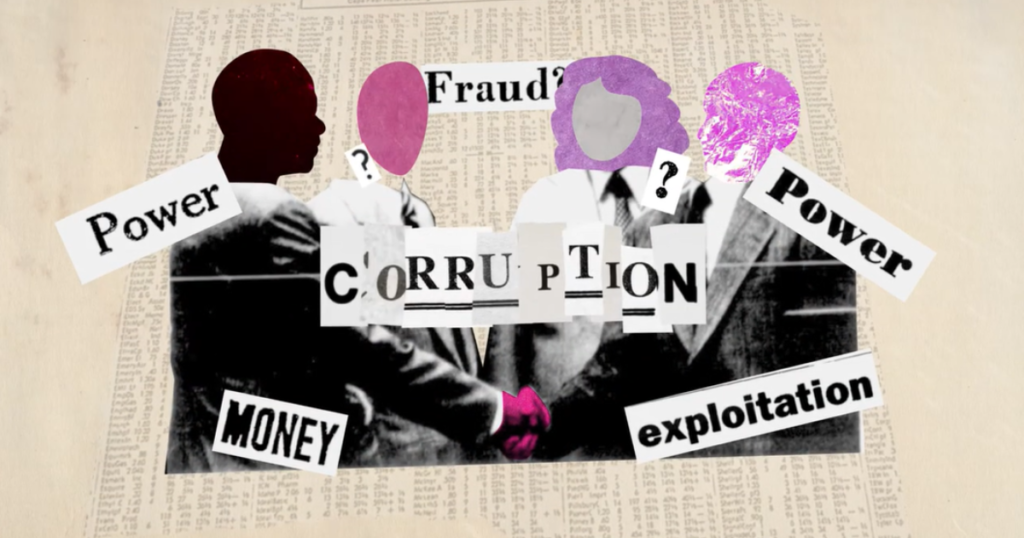What is political corruption in PNG?

Understanding Political Corruption in Papua New Guinea
Political corruption is a significant issue in Papua New Guinea (PNG), impacting the country’s development, governance, and daily lives of its citizens. In simple terms, political corruption refers to the misuse of power by government officials for personal gain. This can include bribery, embezzlement, nepotism, and abuse of power. Let’s explore what political corruption in PNG looks like, its impact, and some current statistics and facts.
What is Political Corruption?
Political corruption occurs when government officials and politicians exploit their positions to enrich themselves, friends, or family at the expense of the public. Instead of serving the people, corrupt officials prioritize personal gain. This misuse of power undermines trust in government institutions, weakens democracy, and hampers development.
Political Corruption in PNG: The Current Situation
Papua New Guinea has struggled with political corruption for many years. The country is rich in natural resources, like gold, copper, and oil, but corruption has prevented these resources from benefiting the population as a whole. Here are some key points and statistics to understand the current situation:
- Corruption Perception Index:
- PNG ranks poorly on the Corruption Perception Index (CPI) by Transparency International. In 2023, PNG was ranked 124 out of 180 countries, indicating high levels of perceived corruption.
- The index measures how corrupt a country’s public sector is perceived to be, with higher numbers indicating worse corruption.
- Misuse of Public Funds:
- A common form of corruption in PNG involves the misuse of public funds. Government officials have been accused of diverting funds meant for public services, such as health and education, into their pockets.
- According to a 2019 report by the Auditor General’s Office, millions of dollars were misappropriated from various government departments.
- Bribery and Nepotism:
- Bribery is widespread in PNG, affecting various sectors including law enforcement, judiciary, and public services. People often pay bribes to receive basic services or avoid legal troubles.
- Nepotism, where officials favor relatives and friends for jobs and contracts, is also rampant. This practice leads to inefficiency and denies opportunities to deserving individuals.
- Impact on Economy:
- Corruption negatively impacts PNG’s economy. According to the World Bank, corruption costs PNG around 3% of its GDP annually.
- Foreign investors are often reluctant to invest in PNG due to the high levels of corruption, which creates an uncertain business environment.
- Health and Education:
- Corruption has severely affected the health and education sectors in PNG. Funds allocated for hospitals and schools are often misused, leading to poor infrastructure and inadequate services.
- A 2017 study by the National Research Institute found that about 40% of health funds were misappropriated or not spent as intended.
Real-Life Examples
- The Paul Tiensten Case:
- Paul Tiensten, a former PNG minister, was sentenced to nine years in prison in 2014 for misappropriating K10 million from the National Agriculture Development Plan. This case highlighted how high-ranking officials misuse public funds for personal benefit.
- Nautilus Minerals Scandal:
- In 2019, the PNG government was involved in a controversial deal with Nautilus Minerals, a Canadian mining company. Allegations of corruption and mismanagement surfaced, resulting in financial losses for PNG.
The Fight Against Corruption
PNG has been taking steps to combat corruption, but challenges remain. Here are some efforts and initiatives aimed at addressing the issue:
- Establishment of ICAC:
- The Independent Commission Against Corruption (ICAC) was established to investigate and prosecute corruption cases. This body aims to increase accountability and transparency within government institutions.
- Anti-Corruption Policies:
- The PNG government has introduced anti-corruption policies and laws to strengthen governance and reduce corruption. However, enforcement remains weak, and more effort is needed to implement these policies effectively.
- Public Awareness and Participation:
- Raising public awareness about the dangers of corruption and encouraging citizen participation in governance are crucial steps. Civil society organizations and media play a vital role in exposing corruption and holding officials accountable.
- International Support:
- PNG has received support from international organizations, such as the United Nations and the World Bank, to strengthen its fight against corruption. These organizations provide resources, expertise, and support for anti-corruption initiatives.
Political corruption in Papua New Guinea is a pressing issue that affects the country’s development and the well-being of its citizens. While efforts are being made to tackle corruption, significant challenges remain. It requires a collective effort from the government, civil society, and international community to create a transparent and accountable system that prioritizes the needs of the people. Addressing corruption is not only about enforcing laws but also about changing mindsets and building a culture of integrity and honesty in all sectors of society. By doing so, Papua New Guinea can pave the way for a brighter future, where its rich resources benefit everyone, not just a privileged few.